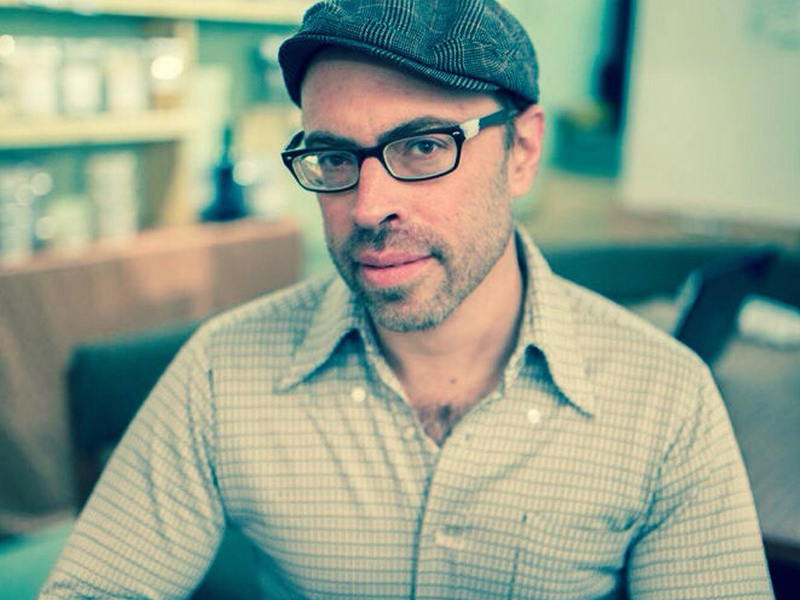TORONTO – Dr. Menachem Feuer is a senior editor at Berfrois, a visiting assistant professor of Jewish studies at York University, a writer, and a philosopher. He was the subject of a documentary about his life called Shlemiel, and writes a widely-read blog called The Shlemiel in Theory Blog. His writings about the philosophy of the shlemiel have appeared recently in the New York Times, and his blog has outlined how the idea of the shlemiel permeates modern North American pop culture.
The CJN had a chance to speak to Feuer via email, where he discussed his upbringing, what it means to be a shlemiel, and how the shlemiel can impact our lives in ways we never thought of.
Could you tell us a little bit about yourself?
I was born in a small town in upstate New York called Gloversville. My grandfather was a glove-maker and came to America with the dream of making a large glove company. And his dreams came true. He owned several tanneries. My father’s leather company, which he started after my grandfather’s death, was Interamerica Leather Company.
Everything in [my family’s] lives was God’s hand. Although I did my own thing, I always in some way believed I was special. This was a shlemielish thing to believe. I trusted in my powers too much and trusted that reality would be good to me – as my dad assured me. But that’s what schlemiels sometimes do….after all, shlemiels aren’t realists and don’t – as a rule – change and become cynics.
But there is much more to the story of my journey through life from [a] secular to a Baal Teshuva. I rebelled against my father and didn’t like his intellectual elitism. He demeaned me because I wasn’t him, so I did the small town thing, and partied a lot with a wild bunch of small town friends. I liked the Grateful Dead, Phish, etc. I toured and revelled in the dancing and public experience. I experienced an American kind of mysticism. But when I went to college (at the State University of New York at Binghamton) I changed my life and decided to rebel against my small town friends and my dad. I wanted to do things my way.
Since I repressed my intellectual and spiritual curiosity in high school, I was voracious in college. I read countless books in philosophy and literature. I painted and almost did a BFA. My teachers were blown away by my passion. My friends at university were mostly New Yorkers who were very artistic, creative, and brilliant. We used to eat a lot together; we had dance parties; and we constantly discussed the meaning of life from a vantage of creative intellectual, mystical, and artistic perspectives. We wanted to be authentic and honest with who we were – Americans, humans, different, etc. – and to each other.
We were fed up with American culture in the 90s and wanted nothing to do with it. We turned to art, film, and literature. We were honest about our search for truth and were committed to being transformed and living life in the deepest manner possible. Looking back, I realize how, in a real way, the spiritual search can makes us into shlemiels. Think of Ben Stiller in Noah Baumbach’s While We’re Young. His belief in art and ethical imperatives doesn’t fit in with millennials and he is out of place (the odd one out). I wrote on this here and here.
Where have you taught academically?
I worked at major Universities in Toronto: Ryerson and York. I have also taught at colleges such as Humber and Seneca. I currently teach at York University but I have also taught and designed a Jewish studies course for the University of Waterloo. I also designed a course on the shlemiel for the University of Toronto.
Could you tell me specifically about your Shlemiel Project (and your blog)? What drew you to that area of study? What exactly is a shlemiel?
My shlemiel project is to use my blog, essays for Berfrois, journals, book collections, and the book I am writing for a reputable University Press to promote the shlemiel as a relevant literary, philosophical, religious, and cultural figure which we can learn from. His trials and tribulations are ours. He can give us insight into our goodness and what is best in humanity. Comedy has that potential. As you can see from my essays on my blog an at Berfrois, I believe in this.
My essays on the shlemiel for Berfrois can give you a strong sense of how I address the shlemiel in literature, philosophy, film, culture, and stand-up comedy.
Would you consider yourself a shlemiel?
I look at myself through the eyes of the shlemiel. Do I think I am a shlemiel? As you can see from what I have written in my bio, the answer is yes. But it is not always yes. My biggest struggle is between the cynic (skeptic/intellectual) and the shlemiel optimist. I have both in me. I prefer the shlemiel to the skeptic but reality bites back. The shlemiel’s goodness must fight with the cynic. As readers, we are the cynics. We laugh at the shlemiel thinking we are better, yet, at the same time, we identify with him. He reminds us of how broken we are and gives us a glimmering of hope.
Menachem Feuer has a PhD in Comparative Literature and a Masters in Philosophy. He teaches Jewish Studies and Jewish Philosophy at York University in Toronto. Feuer has published several essays and book reviews on philosophy, literature, and Jewish studies in several book collections and peer-reviewed journals including Modern Fiction Studies, Shofar, MELUS, German Studies Review, International Studies in Philosophy, Comparative Literature and Culture, Ctheory, and Cinemaction.
